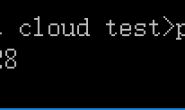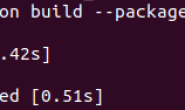这段代码不用google api,而是直接抓取Google的搜索结果页,找到需要的链接后存储在links.txt, Google的搜索页面可能会变化,这段代码也需要修改
import re,urllib,urllib2
class GoogleHarvester:
re_links = re.compile(r'<a class=l href="(.+?)"',re.IGNORECASE|re.DOTALL)
def __init__(self):
pass
def harvest(self,terms):
'''Searchs Google for these terms. Returns only the links (URL).
Input: terms (string) -- one or several words to search.
Output: A list of urls (strings).
Duplicates links are removed, links are sorted.
Example: print GoogleHarvester().harvest('monthy pythons')
'''
print "Google: Searching for '%s'" % terms
links = {}
currentPage = 0
while True:
print "Google: Querying page %d (%d links found so far)" % (currentPage/100+1, len(links))
address = "http://www.google.com/search?q=%s&num=100&hl=en&start=%d" % (urllib.quote_plus(terms),currentPage)
request = urllib2.Request(address, None, {'User-Agent':'Mozilla/4.0 (compatible; MSIE 6.0; Windows NT 5.1)'} )
urlfile = urllib2.urlopen(request)
page = urlfile.read(200000)
urlfile.close()
for url in GoogleHarvester.re_links.findall(page):
links[url] = 0
if "</div>Next</a></table></div><center>" in page: # Is there a "Next" link for next page of results ?
currentPage += 100 # Yes, go to next page of results.
else:
break # No, break out of the while True loop.
print "Google: Found %d links." % len(links)
return sorted(links.keys())
# Example: Search for "monthy pythons"
links = GoogleHarvester().harvest('monthy pythons')
open("links.txt","w+b").write("\n".join(links))




